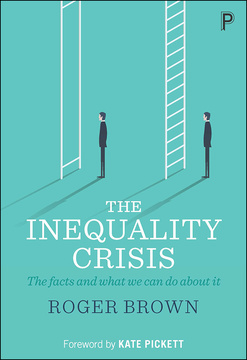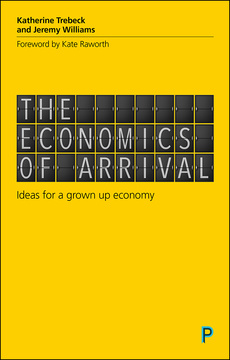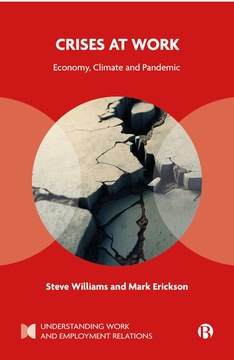Published
Jul 31, 2023Page count
190 pagesISBN
978-1447369936Dimensions
234 x 156 mmImprint
Policy PressPublished
Jul 31, 2023Page count
190 pagesISBN
978-1447369943Dimensions
234 x 156 mmImprint
Policy PressPublished
Jul 31, 2023Page count
190 pagesISBN
978-1447369943Dimensions
234 x 156 mmImprint
Policy PressOn the blog:
A Universal Basic Income is bad for social justice
Today’s economics offers us a far too narrow perspective on the role that paid work plays in our lives, as individuals and as a society.
This book examines the urgent workplace challenges we’re facing today, from automation to AI and climate change, with an interdisciplinary and historical analysis that challenges and broadens the scope of existing economic literature. Exploring the current economic proposals to address these issues, it advocates for a more egalitarian and sustainable future that builds workers’ protections into the very fabric of our economic systems.
This is a resounding call for greater economic social justice and equality at work and a valuable resource for social scientists from fields like heterodox economics, business and sociology.
Flora Gill is Honorary Associate Professor of Work and Organisational Studies at the University of Sydney.
1. Introduction
Part 1: Through the lens of economics
2. The unfortunate legacies of the 18th and 19th centuries
3. The scope and limits of economics
4. Paid work through the lens of economics
5. Equity, social justice and the ‘efficient economy’
Part 2: The rise and fall of progressive policies
6. From the ‘Dark Satanic Mills’ to the welfare state
7. Enter neoliberalism
Part 3: When profit and prejudice reign
8. Profits vs the duty of care
9. Still waiting – gender, race and ethnicity
Part 4: Beyond the measuring rod of money
10. Looking at paid work outside the lens of economics
11. Power over others
12. Human rights and democracy in the workplace
13. Confronting climate change and the AI revolution
Epilogue












